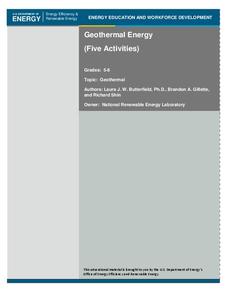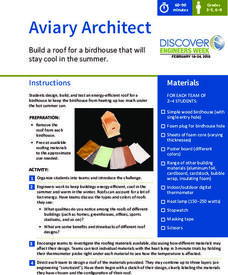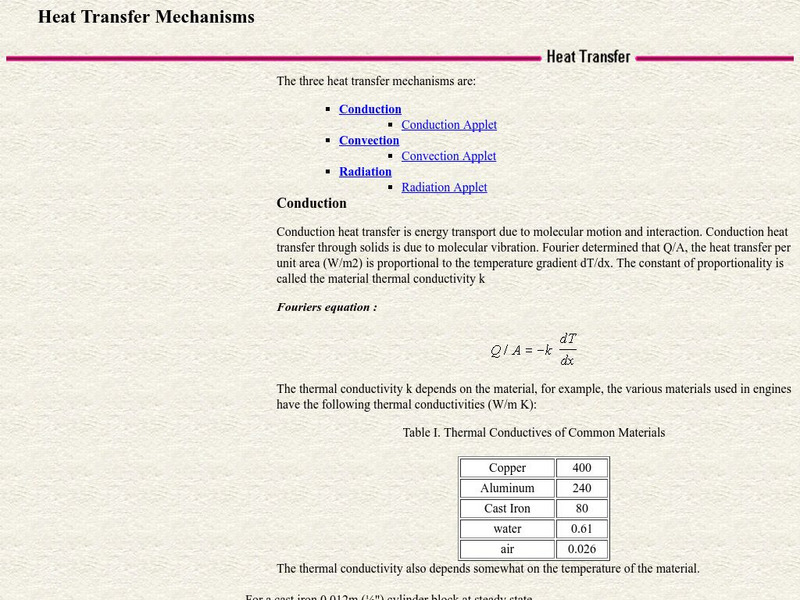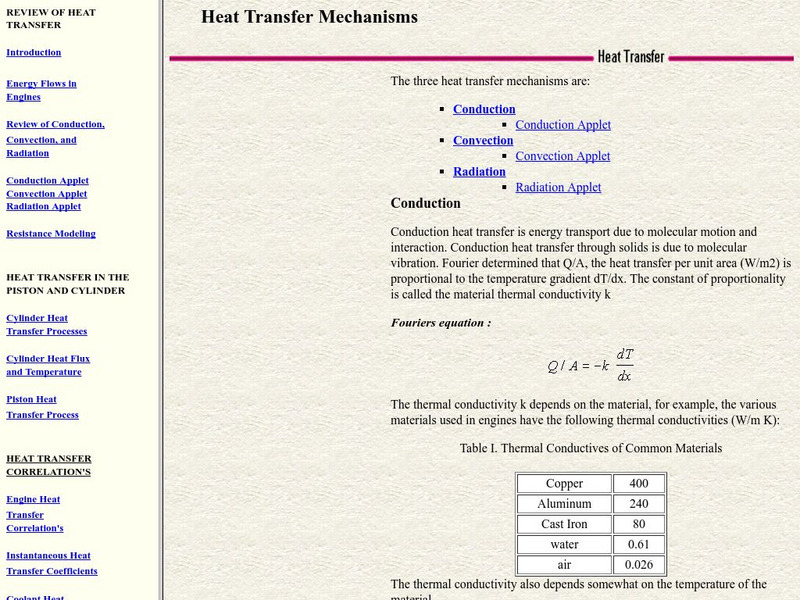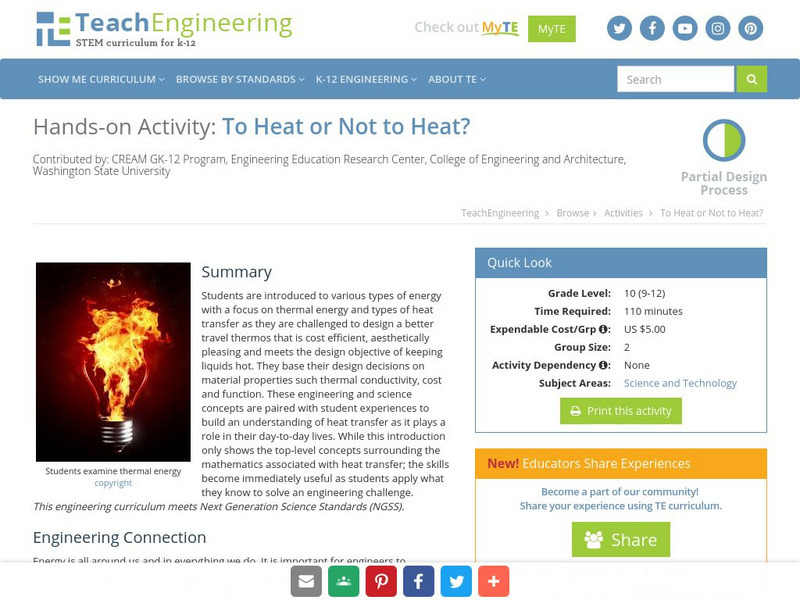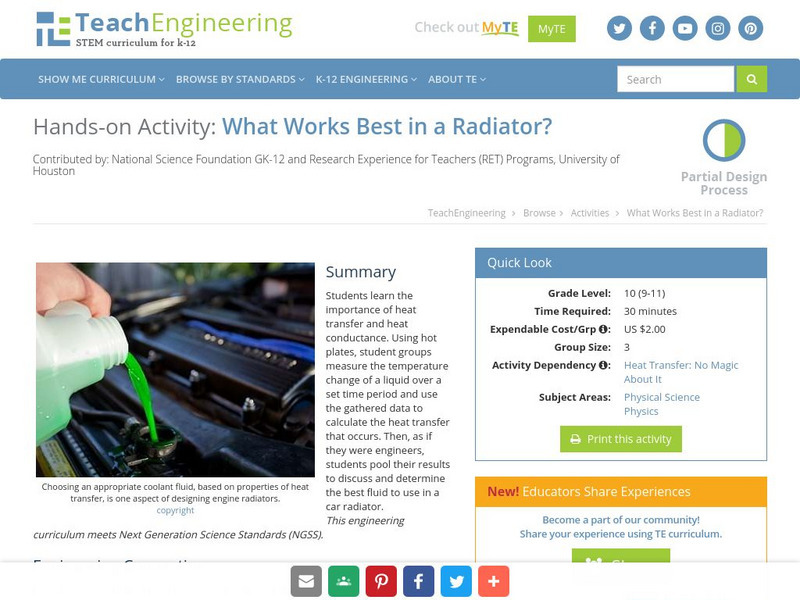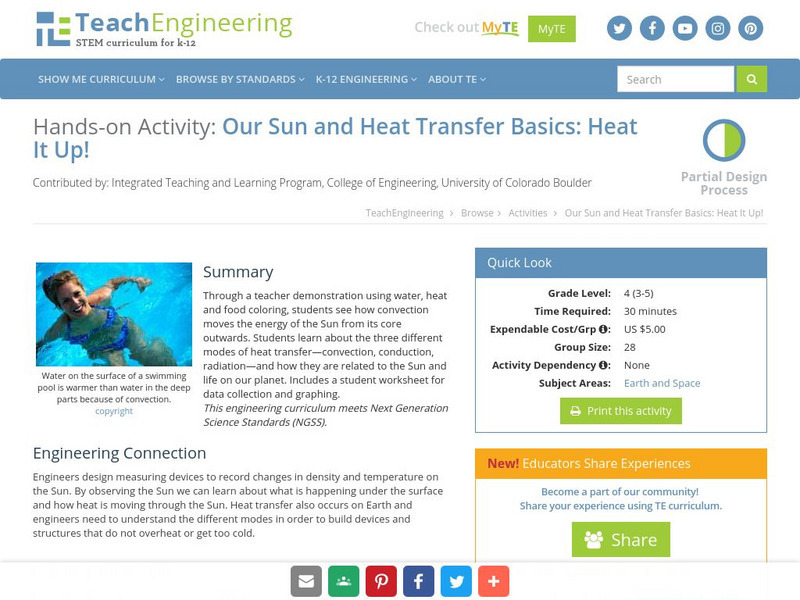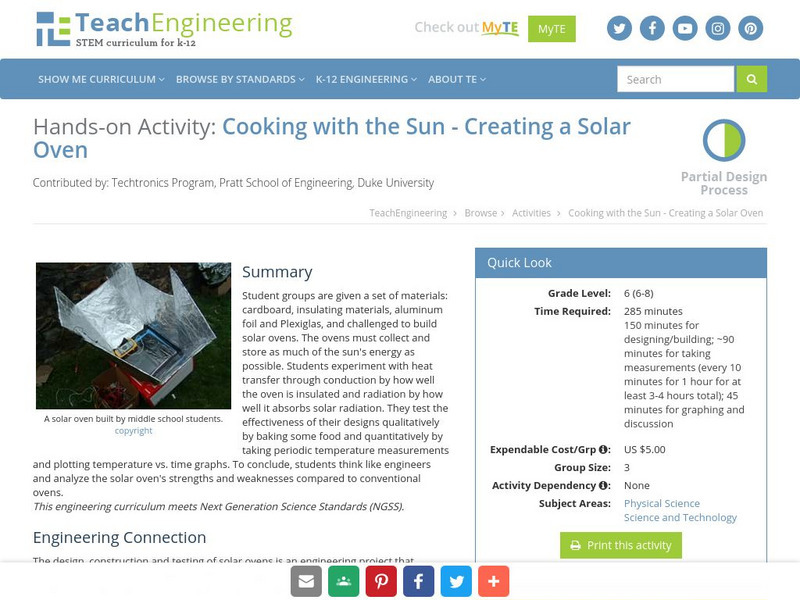NASA
Feel the Heat
Heat water up like a NASA engineer. Using the engineering design process, investigators create a system to trap and move heat through a water-filled tube. Designers participate in a post-activity discussion that highlights the role of...
US Department of Energy
Geothermal Energy
With Earth Day quickly approaching, as well as many science fairs, why not challenge your class to investigate geothermal energy or other renewable energy resources? There are five driving questions explored in depth here, as well as...
Discovery Education
Cool It!
Adjust the melting time of ice without varying the temperature! Learners experiment with different materials to decide how the materials affect the rate an ice cube melts. They then connect their findings to the conductivity of each...
DiscoverE
Aviary Architect
Groups of two to four work collaboratively to engineer a birdhouse that will stay cool in the summer heat. Teams examine several different-colored roofs, testing the efficiency of each with a heat lamp. Then, groups sketch their ideas,...
Curated OER
Heat: The Transfer of Thermal Energy
For this heat worksheet, students complete experiments with heat and answer short answer questions about the transfer of thermal energy. Students complete 4 questions, one chart, and one bar graph.
Discovery Education
It's Melting!
It's a race to the finish! Which ice cube will melt the fastest? Scholars discover the effect thermal energy has on melting ice. They experiment with melting ice cubes on different materials and learn that even at a consistent...
It's About Time
Energy Flow in Ecosystems
Emerging biochemists more fully understand the flow of energy in ecosystems as they explore the laws of thermodynamics and relate them to energy transfer in food chains. They also investigate heat loss from the human body and how...
PBS
Insulation Station
It's all about the material. Learners experiment with different substances as they try to keep an ice cube from melting. They draw conclusions by answering a set of questions about the types and amount of material that had the best result.
Colorado State University
Csu: Heat Transfer Mechanisms
An excellent page from the Colorado State University with a heavy mathematical emphasis. Each form of heat transfer--conduction, convection, and radiation--is defined, compared, and contrasted. Mathematical equations governing the rates...
Colorado State University
Colorado State University: Heat Transfer Mechanisms
An excellent page from the Colorado State University with a heavy mathematical emphasis. Each form of heat transfer--conduction, convection, and radiation--is defined, compared and contrasted. Mathematical equations governing the rates...
Texas Instruments
Texas Instruments: Heat Transfer by Conduction
The purpose of this activity is to monitor the transfer of heat between 2 materials by measuring the temperature changes in them.
TeachEngineering
Teach Engineering: To Heat or Not to Heat?
Students are introduced to various types of energy with a focus on thermal energy and types of heat transfer as they are challenged to design a better travel thermos that is cost efficient, aesthetically pleasing and meets the design...
Colorado State University
Colorado State Univ.: Heat Transfer Resistance Modeling
This site from the Colorado State University discusses the tranfer of heat by conduction and convection. Discussion centers around the application of these two heat transfer mechanisms to engines. The variables that effect the resistance...
TeachEngineering
Teach Engineering: What Works Best in a Radiator?
Students learn the importance of heat transfer and heat conductance. Using hot plates, student groups measure the temperature change of a liquid over a set time period and use the gathered data to calculate the heat transfer that occurs....
Science Buddies
Science Buddies: Project Ideas: How Horses Keep Warm in the Wind
In this mammalian biology science fair project, students will learn about methods of heat transfer and determine the best direction in which horses should stand in a cold wind to maintain their core temperature. The Science Buddies...
TeachEngineering
Teach Engineering: Heat It Up!
Through a teacher demonstration using water, heat and food coloring, students see how convection moves the energy of the Sun from its core outwards. Students learn about the three different modes of heat transfer (convection, conduction,...
TeachEngineering
Teach Engineering: Solar Water: Heat It Up!
Students explore energy efficiency, focusing on renewable energy, by designing and building flat-plate solar water heaters. They apply their understanding of the three forms of heat transfer (conduction, convection and radiation), as...
PBS
Pbs Kids: Conduction Countdown
PBS offers an experiment that kids can do at home to learn more about heat conduction and how it works.
TeachEngineering
Teach Engineering: Solar Water Heater
Student teams design and build solar water heating devices that mimic those used in residences to capture energy in the form of solar radiation and convert it to thermal energy. This thermal energy is next transferred to water (to be...
TeachEngineering
Teach Engineering: Cooking With the Sun Creating a Solar Oven
For this activity, students will be given a set of materials: cardboard, a set of insulating materials (i.e. foam, newspaper, etc.), aluminum foil, and Plexiglas. Students will then become engineers in building a solar oven from the...
University Corporation for Atmospheric Research
Ucar: Atmospheric Processes Conduction
This simple demonstration helps students understand the concept of conduction. Site includes background information, images, and lesson plans outlining the demonstration of conduction.
Read Works
Read Works: What Is Heat?
[Free Registration/Login Required] An informational text about heat and how it is transferred from one object to another. A question sheet is available to help students build skills in reading comprehension.
Other
Applied Thermodynamics: Heat Transfer
Heat transfer, rates of heat exchange,conduction, radiation and convection are defined and discussed at this site from Applied Thermodynamics. Well illustrated.
TeachEngineering
Teach Engineering: Let's Get Breezy!
Students apply an understanding of the concept of heat transfer through convection, conduction, and radiation as they use wireless temperature probes to investigate the heating capacity of different materials under heat lamps.

